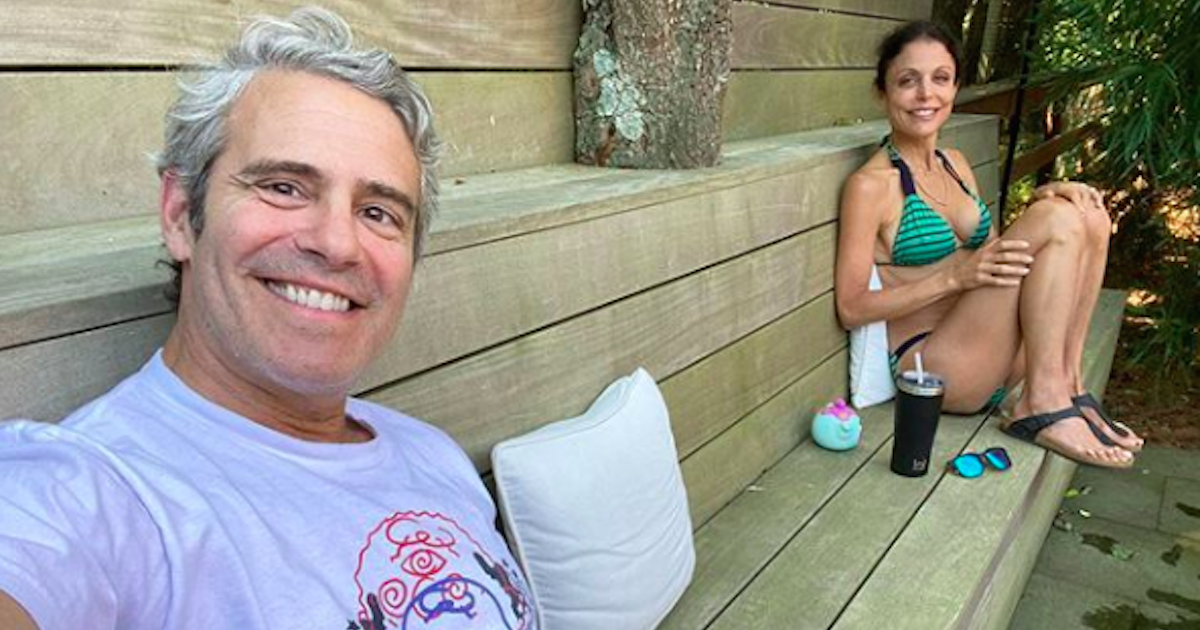Bravo’s Andy Cohen and former Real Housewife, Bethenny Frankel, are proving it’s still possible to soak up some sun while staying safe.
On Instagram, Cohen, 52, shared a selfie of his socially-distant reunion with former Real Housewife of New York Bethenny Frankel, 49, six feet apart. The pair have both had their own brushes with skin cancer in the past.
Read MoreHow To Protect Yourself From Sun Damage
It’s been proven that sun damage is the leading cause of skin cancer particularly melanoma. According to Dr. Anna Pavlick, a medical oncologist at NYU Perlmutter Cancer Center, 90% of melanoma diagnoses are caused by extreme sun exposure and damage such as sunburns, Additionally, melanoma can develop from an existing mole or it can appear as a dark or pink growth on the skin even in places that have never been exposed to the sun.
Enjoying some time in the great outdoors can be critical for many people, but there are ways to protect the skin from being exposed to ultraviolet radiation. Here are a few steps:
- Avoid sun during peak hours around 10 a.m. to 2 p.m
- Cover your skin and eyes with either sunglasses or a hat
- Wear an SPF sunscreen of 30 or higher, especially on your face
- Get an annual skin check
- Avoid tanning beds
Dr. Dendy Engelman breaks down the five most helpful tips to protect your skin from damage
Some may assume that you only need to apply sunscreen in the summer, but that’s actually not the case. While summer may mean rising temperatures, it’s just as possible to experience sun damage in colder months. So, proper sun protection is critical all year-round.
Related: 'Get Your Skin Checked': Hugh Jackman Posts a Skin Cancer Prevention Reminder for Fans
"It's a common misconception that people think they only have to protect their skin when they're in the bright, warm sunshine," said Dr. Dendy Engelman, a dermatologist and Mohs surgeon who practices in New York. "But the reality is, we can get sun damage at any time throughout the year… even in the cold, wintry months. If we're unprotected for even fifteen minutes a day. If we think about the cumulative effects that has on our skin over a lifetime, it's very real."
Dr. Dendy Engelman urges people to apply sunscreen all year-round
Learn more about SurvivorNet's rigorous medical review process.

